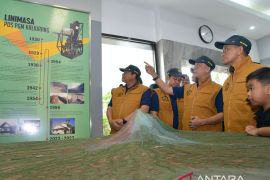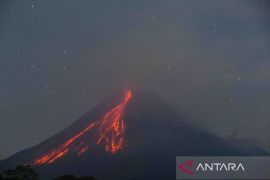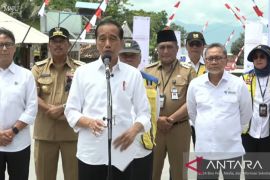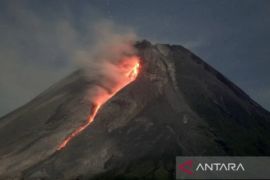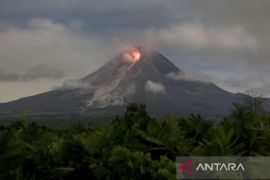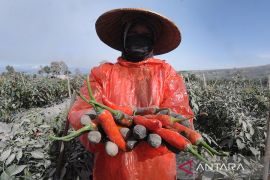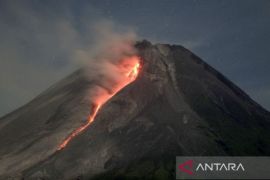Findings garnered will share locally-evolved strategies regarding mitigation, evacuation, reconstruction and recovery with governmentsJakarta (ANTARA News) - The long-term safety of Indonesians living near Mount Merapi will be the focus of a new partnership formed between Australia and Gadjah Mada University (UGM).
A media release of Australian Embassy in its official website said the world class Yogyakarta-based university would receive A$1.2 million from the Australia Indonesia Facility Disaster Reduction (AIFDR) to enhance existing preparedness, rehabilitation and reconstruction programs.
"Mount Merapi is one of the most active volcanoes in Indonesia, so we need to do all we can to ensure the safety of those who wish to live in the area," said AIFDR co-director Matt Hayne.
A A$350,000 research grant being announced on Wednesday by the Australian government marked the beginning of this invaluable partnership.
This new research project will seek a better understanding of local knowledge, belief systems and ways of life in 30 villages in the Yogyakarta and Central Java, with findings used to guide future preparedness strategy and livelihood recovery plans.
"Volcanoes are incredibly difficult to plan for and devastating, as families lose loved ones and communities are displaced," Hayne said.
"It is important we continue to prepare for future eruptions. A comprehensive preparedness strategy has to acknowledge, understand and use the generations of experience that local communities have from living with Mt Merapi for so long," he added.
UGM`s head of anthropology, Dr Nicolas Warouw, believes this project will bridge the gap between the government and victims of Mount Merapi.
"Findings garnered will share locally-evolved strategies regarding mitigation, evacuation, reconstruction and recovery with governments," Warouw said.
"This partnership is not only designed to increase government understanding of local communities, but will also contribute to larger and more comprehensive social and economic studies designed to influence policy dialogue," he added.(*)
Editor: Aditia Maruli Radja
Copyright © ANTARA 2011
